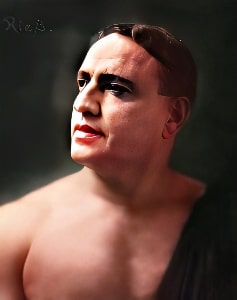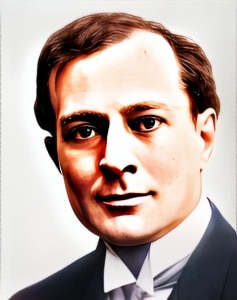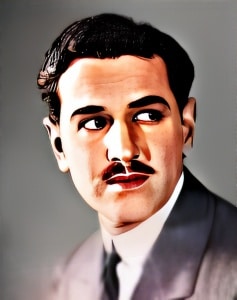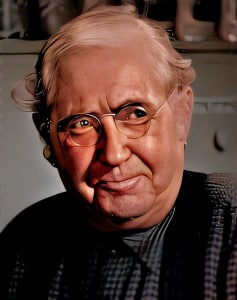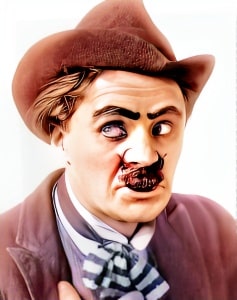 William Armstrong (14 January 1891 – 1 March 1924) was a British-American actor and comedian whose career unfolded against the backdrop of the British music hall tradition and the burgeoning American film industry.
William Armstrong (14 January 1891 – 1 March 1924) was a British-American actor and comedian whose career unfolded against the backdrop of the British music hall tradition and the burgeoning American film industry.
Born on 14 January 1891 in Bristol, England, Armstrong’s journey in the world of entertainment would take him from the stages of Fred Karno’s productions in his native Bristol to the bustling film studios of Keystone Studios in the United States.
Armstrong’s early career was rooted in the rich tapestry of the British music hall tradition, a form of entertainment that encompassed a variety of acts, including comedy, variety performances, and musical numbers. It was within this vibrant milieu that Armstrong honed his craft, developing the skills that would later serve him well on both sides of the Atlantic.
His association with Fred Karno, a renowned comedy impresario, marked a significant chapter in Armstrong’s career. From 1910 to 1914, Armstrong graced the stages of Bristol, showcasing his talents in various roles for Karno. This period of apprenticeship laid the foundation for his future endeavors and prepared him for the international stage.
The allure of Hollywood and the burgeoning film industry beckoned, and Armstrong set his sights on the United States. Keystone Studios, known for its comedic productions and the launchpad for the careers of many legendary actors, became Armstrong’s new creative home. His forte lay in comedy roles, aligning him with the comedic genius of Charlie Chaplin, among others.
In the silent film era, where physical comedy reigned supreme, Armstrong found his niche. His collaboration with Charlie Chaplin, a pioneer in the art of visual comedy, provided him with a platform to showcase his comedic timing and physical prowess. Notable roles included the character of the Minister in “ The Tramp” and the First Shanghaied Seaman in “ Shanghaied.” These films, among others, contributed to Armstrong’s reputation as a reliable and entertaining presence on the silver screen.
Tragically, Armstrong’s promising career was cut short by the scourge of tuberculosis. On 1 March 1924, in Sunland, California, he succumbed to this devastating illness, leaving behind a legacy in the nascent world of cinema. His untimely death marked the end of a chapter in silent film history, robbing the industry of a talent whose potential was only beginning to unfold.
William Armstrong’s contribution to the early days of American cinema, particularly in the realm of silent comedy, remains a testament to the cross-cultural exchange of talent and ideas. His journey from the stages of British music hall to the cinematic landscapes of Hollywood reflects the dynamic shifts occurring in the entertainment industry during the early 20th century.
While Armstrong’s life was relatively brief, his impact on the silver screen echoes through the annals of film history. The laughter he elicited, the characters he brought to life, and the camaraderie he shared with comedic luminaries of his time endure in the collective memory of film enthusiasts.
In the face of the silent film era’s inherent challenges, where actors communicated through actions rather than words, Armstrong excelled. His ability to convey humor without the aid of dialogue showcased a universal comedic language that transcended cultural and linguistic boundaries. As an integral player in the Keystone Studios ensemble, Armstrong contributed to the foundational years of cinematic comedy.
The legacy of William Armstrong, though tinged with the sadness of an abbreviated career, serves as a reminder of the fragility of life in an era marked by both artistic innovation and personal sacrifice. In the evolving narrative of cinema, Armstrong’s name may not be as widely recognized as some of his contemporaries, but his role in shaping the comedic landscape of early American film is indelible.
The silent film era, with its physicality and visual storytelling, found in William Armstrong a performer who embraced the challenges and opportunities presented by this nascent art form. His journey from the stages of Bristol to the silver screens of Hollywood embodies the transatlantic trajectory of talent during a transformative period in cinematic history. Though tuberculosis silenced his voice, the echoes of his laughter continue to reverberate through the celluloid corridors of a bygone era.
Loading live eBay listings...

